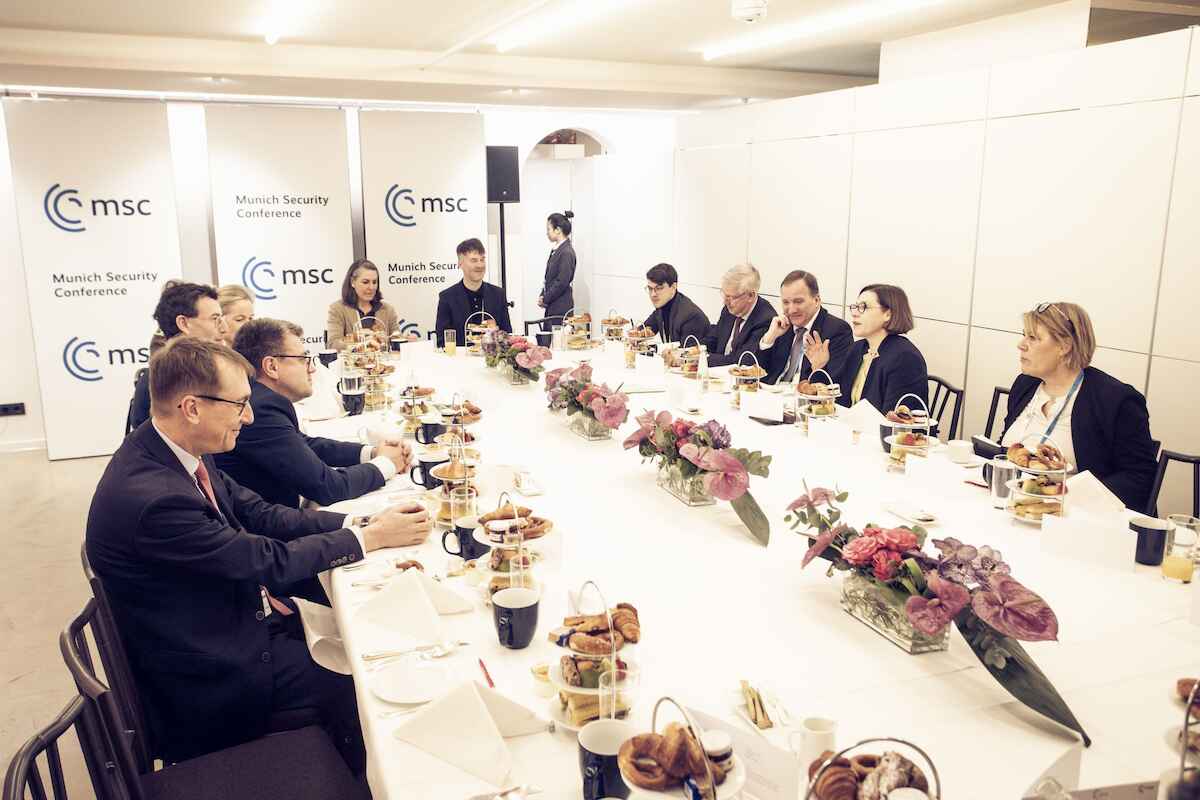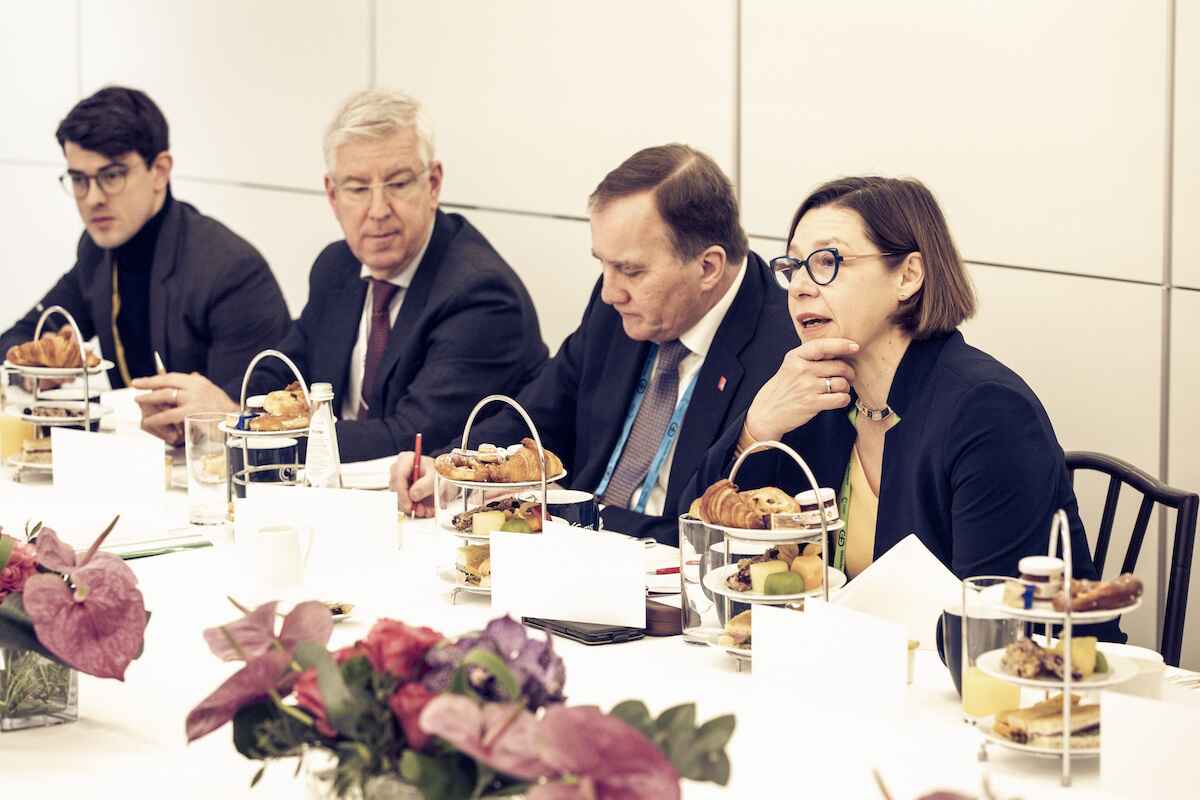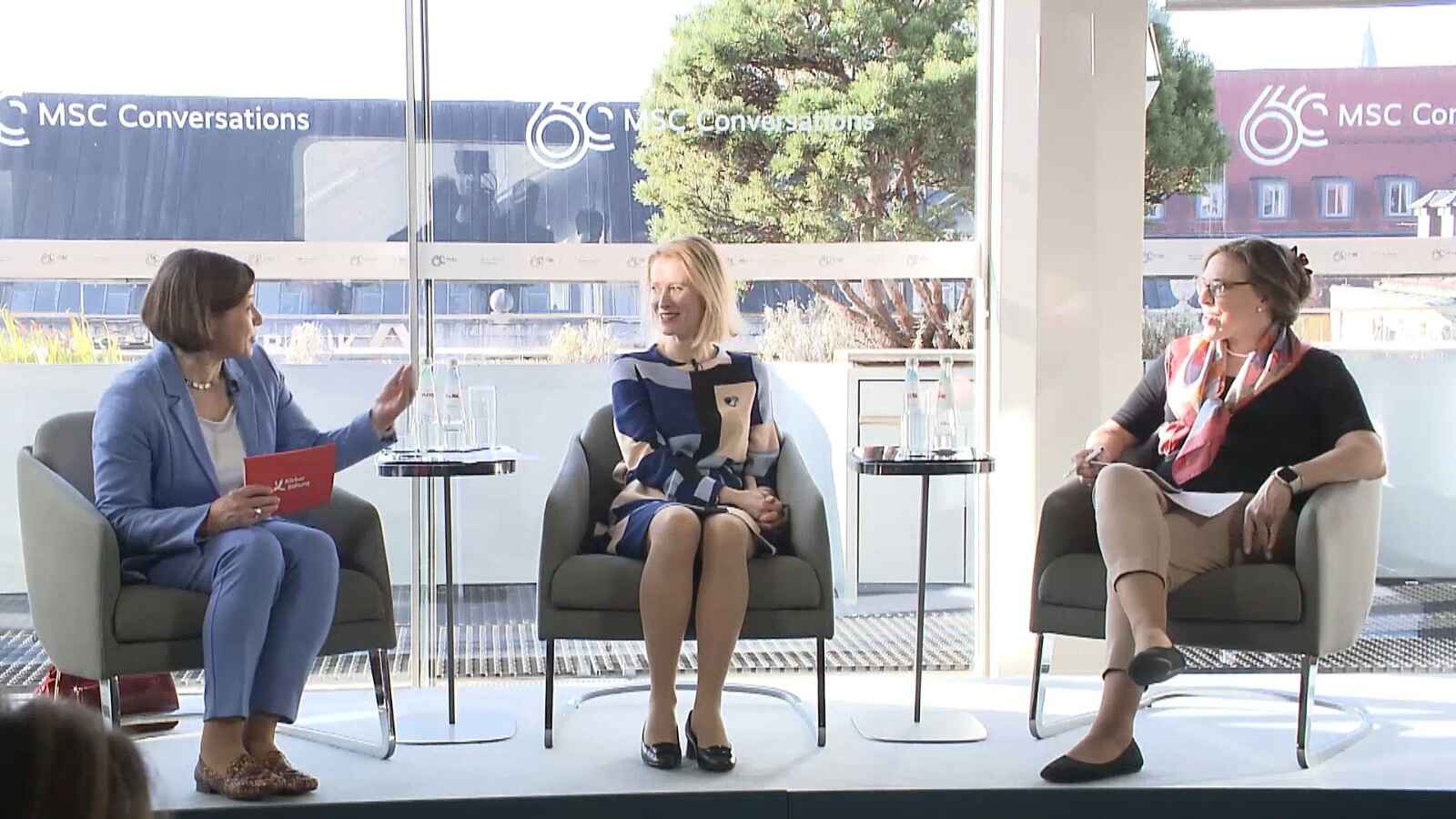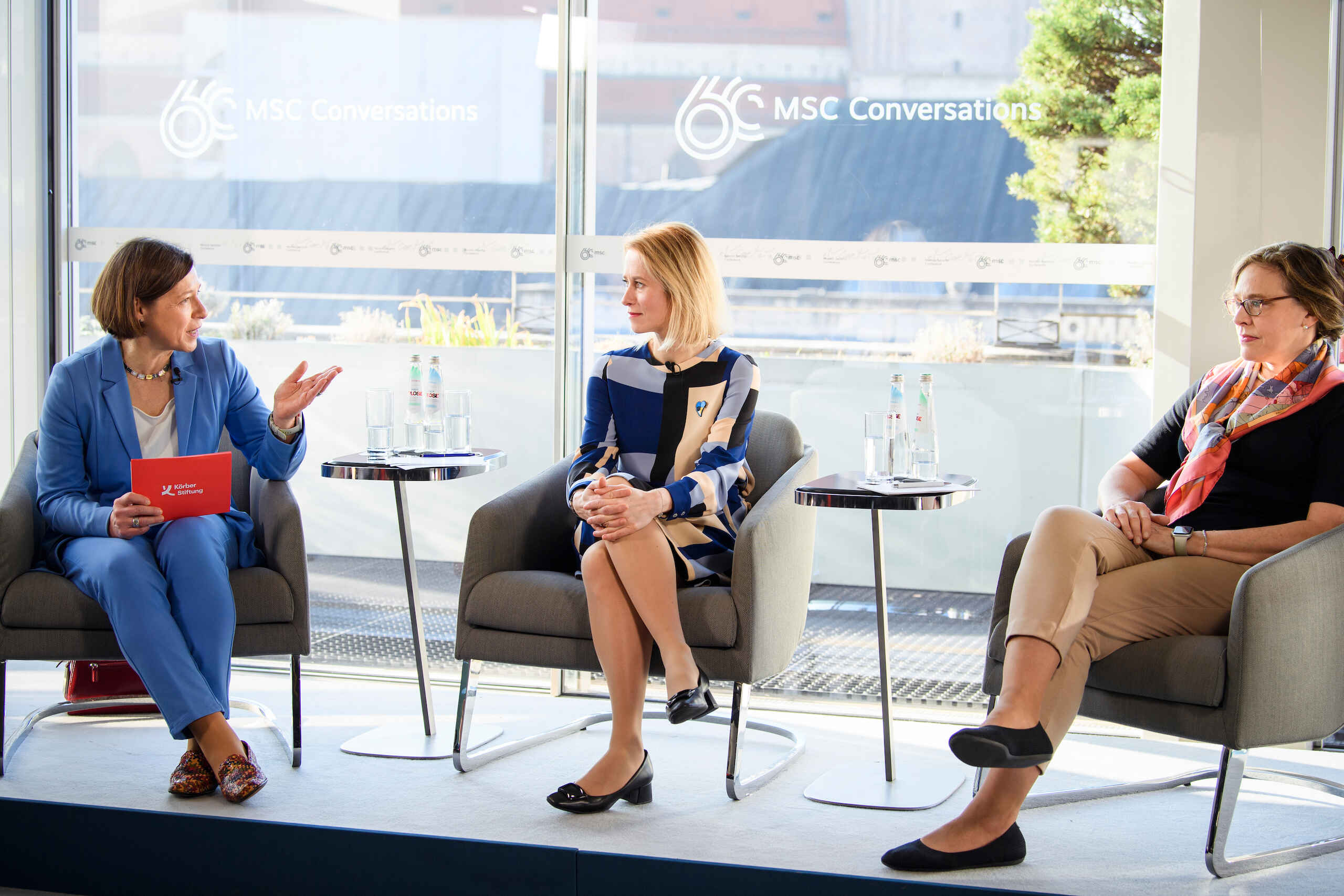
Alexander Koerner/MSC
History & Politics Roundtable: Munich Security Conference
2024 – NATO’s Northern Front
In a year full of anniversaries, NATO faced major challenges. At the 60. Munich Security Conference Kaja Kallas, Prime Minister of Estonia, and Mary Elise Sarotte, author of the history of NATO enlargement “Not One Inch”, debated the changed NATO northern border and historical lessons.
20 years since NATO enlarged to the Baltics, 25 since Central and Eastern Europeans first became allies, and 75 since NATO’s founding, the new memberships of Sweden and Finland are changing NATO’s “northern front”. With Finland’s membership of the alliance, NATO’s border with Russia has been extended by 1,340 km.
As Sophocles advised, “a man of sense judges the new events by the past”, Kallas and Sarotte debated what the past teaches us about how to deal with the urgent questions raised by Russian aggression against Ukraine: What can other states learn from the Baltic countries’ past experiences, both under Russian occupation and since restoring their independence? What should NATO members and the Alliance do to help Ukraine win and prevent further Russian aggression? And, in a year of not just anniversaries but also many elections, how can leaders strike the right balance between continuing to build prosperous societies while also making necessary increases in defense spending? The conversation was moderated by Gabriele Woidelko, Head of History and Politics at the Körber-Stiftung.
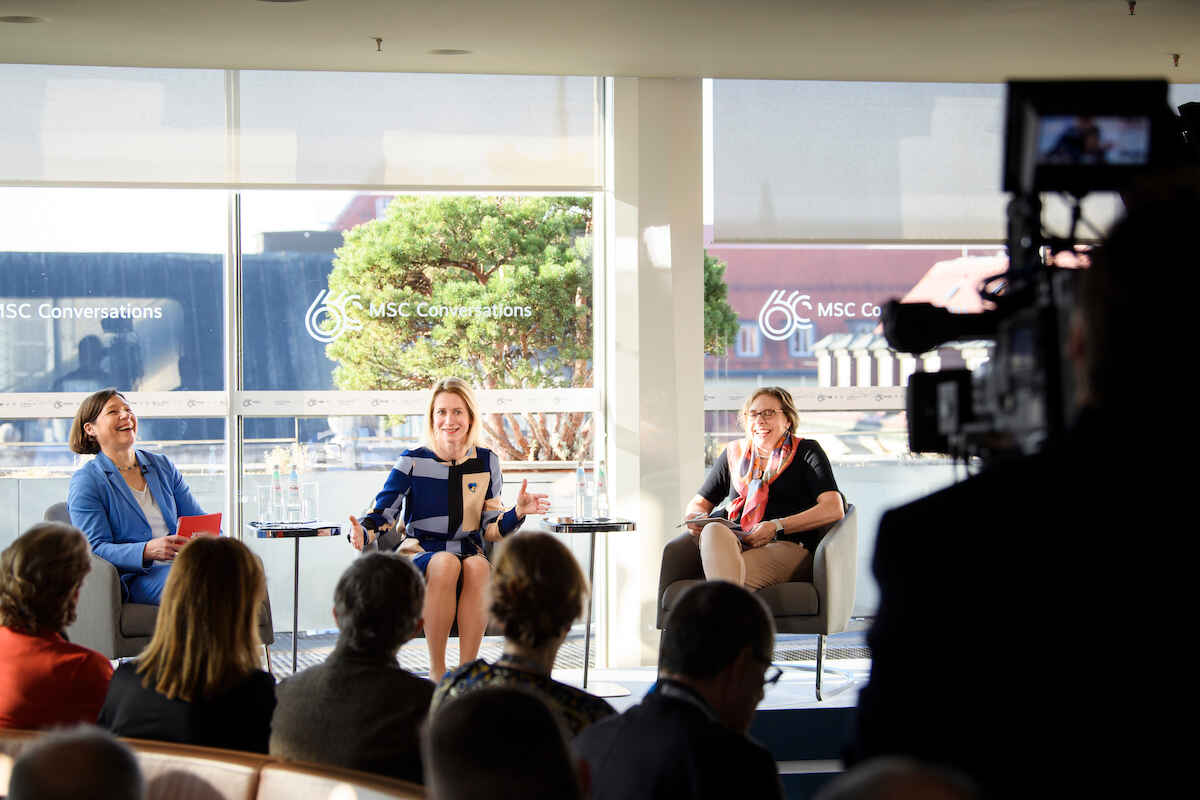
Photos: Alexander Koerner/MSC 
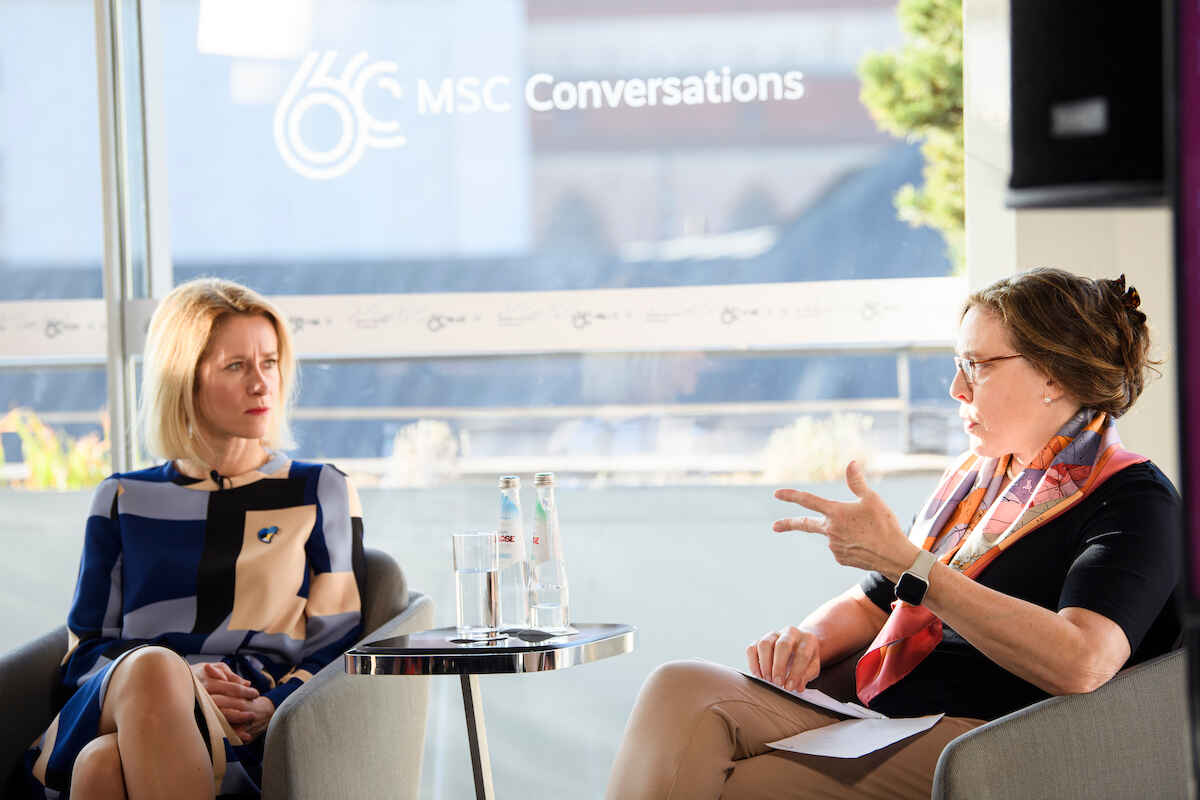
2023 – Challenges in the Baltic Sea region
The current geostrategic and security policy challenges in the Baltic Sea region were the focus of a background discussion at the 59th Munich Security Conference (MSC) on February 18th 2023. Around 20 international experts from the field of politics, history, diplomacy and think tanks took part in the discussion. The Roundtable was jointly organized by the Körber History Forum and the Centre for Geopolitics at Cambridge University.
Who will take the regional leadership role in the Baltic Sea? How can Germany reassure the Baltic states and restore trust? What could a new Ostpolitik in the era of Zeitenwende look like? When thinking about strategy and security in the region, what are the historical pretexts that need to be taken into account? The Estonian Foreign Minister Urmas Reinsalu, historian Brendan Simms and Michael Thumann, foreign policy correspondent of DIE ZEIT offered important insights, impulses and perspectives on these questions.
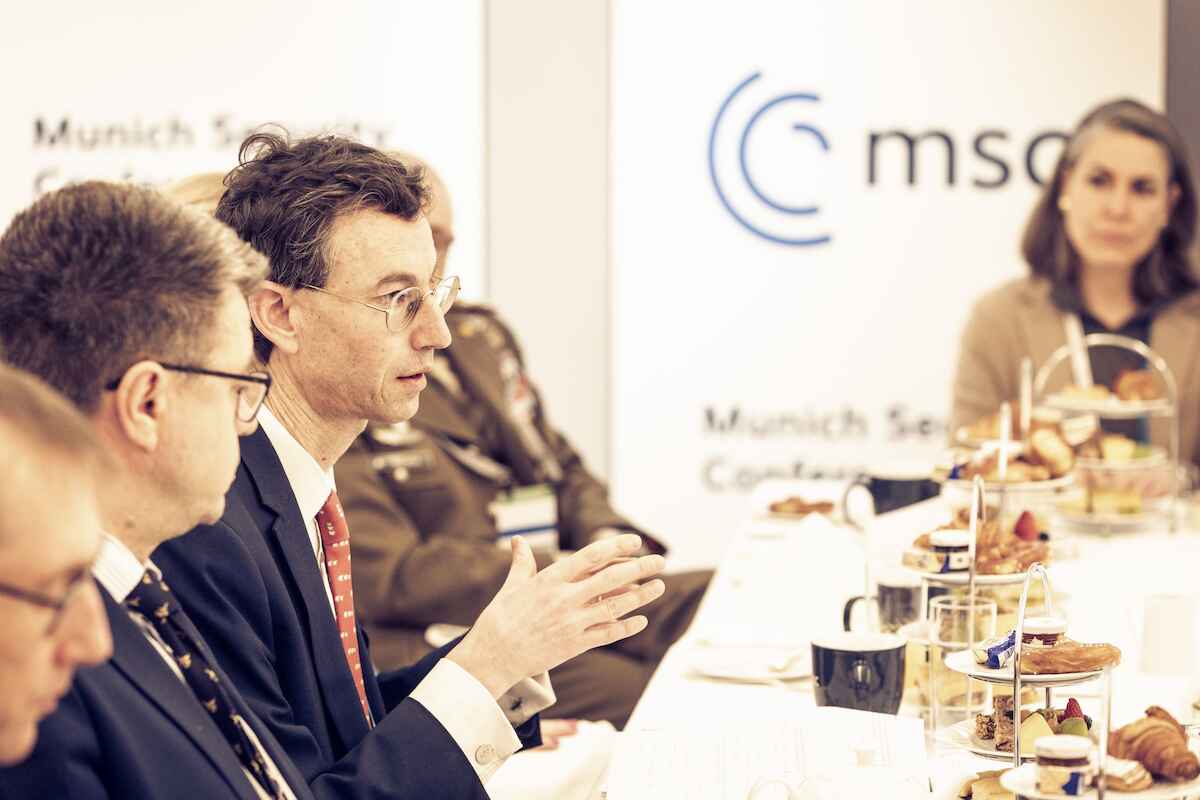
Photos: MSC/Karl-Josef Hildenbrand 